This article was co-authored by wikiHow Staff. Our trained team of editors and researchers validate articles for accuracy and comprehensiveness. wikiHow's Content Management Team carefully monitors the work from our editorial staff to ensure that each article is backed by trusted research and meets our high quality standards.
There are 8 references cited in this article, which can be found at the bottom of the page.
This article has been viewed 52,275 times.
Learn more...
Do you care deeply about a certain political or social issue? You can advocate for what you believe in by submitting a letter to a newspaper. Most newspapers have editorial or opinion pages and encourage readers to submit letters. If you want your submission to be noticed and printed, you need to know how to format your letter. If you make sure your writing is concise, pointed, and timely, you may get to see your letter in print.
Steps
Drafting Your Letter
-
1Open the letter with a simple greeting. “To the Editor" or "Dear Editor” is usually fine. It's best to look at previous letters that have been published in the newspaper and follow their lead, though, just in case the standard is different.[1]
-
2Reply to a specific article in the newspaper.awe some newspapers print more general letters to the editor, you have a better chance of publication if you are referencing a specific article. You can respond to an editorial, op-ed, or news story.[2]
- In your letter, mention the original story with its title, date, and author, and then write your response.
Advertisement -
3Stick to one topic and argue it well. If you have multiple subjects you want to discuss, you should write multiple letters. Newspapers want articles that are pointed and focused. Make sure your reader understands what the topic and argument of your letter is right off the bat. If you have any specific qualifications to speak on the topic, you should bring them up. Backing up your points with facts and figures will also give you more credibility.[3]
- Don’t fudge the facts to make a point, because someone will probably catch your mistake and it will discredit your argument.
-
4Break your letter into a few short paragraphs. Though your letter will be short, breaking it up into paragraphs will help your reader move from one idea to the next. Each paragraph should contain an idea, backed up by facts of personal experience.[4]
- If you have experience with whatever issue is at hand, a personal testimony could help inspire the pathos of your reader, and connect to them in a way pure logic and facts can’t.
-
5Sign your real name. Letters to the editor need to be identified so that people reading the newspaper can trust your legitimacy. Include your full name, title, address, phone number, and email. This way they can contact you if they choose to publish your letter. If your letter is published, the newspaper will only publish your name and city, so don’t worry about the whole world learning your contact information.[5]
- Newspapers usually don’t print anonymous letters, though they might withhold your name if you ask.
Meeting Newspaper Requirements
-
1Keep your letter brief. As a rough estimate, stick to under 250 words. You should check the website of the newspaper you want to submit to, because they will probably have information on preferred word count. It might seem like a pain to have to condense all your thoughts into such a small space, but it will make sure you get straight to your point.[6]
- For example, the Washington Post prefers letters under 250 words.[7]
-
2Write your letter in a timely manner. Newspapers are more likely to print a letter if you are responding to an article within a few days of its publication. The news cycle is so quick these days that if you wait too long to submit your letter, the conversation will be all over. On the other hand, if your point is that people have stopped paying attention to a certain issue, you can bring that up whenever you see fit.[8]
- For example, The New York Times prefers letters responding to articles from the past 7 days.[9]
-
3Type your letter and submit it via email if possible. Most newspapers prefer you to email them your letter.[10] Some do accept handwritten or typed letters in the mail, but this is a lot of extra hassle for both you and them.[11] If you are writing by hand, make sure your handwriting is clean and legible. Before you submit it, read it over for copy-editing mistakes.[12]
- Check the newspaper’s requirements one last time before you submit.
Community Q&A
-
QuestionWhat is the meaning of pertinent?
 DonaganTop Answerer"Pertinent" means relevant, germane, or of interest.
DonaganTop Answerer"Pertinent" means relevant, germane, or of interest.
References
- ↑ https://ctb.ku.edu/en/table-of-contents/advocacy/direct-action/letters-to-editor/main
- ↑ https://www.ucsusa.org/action/writing-an-lte.html
- ↑ https://www.ucsusa.org/action/writing-an-lte.html
- ↑ https://owl.purdue.edu/owl/general_writing/academic_writing/paragraphs_and_paragraphing/index.html
- ↑ https://ctb.ku.edu/en/table-of-contents/advocacy/direct-action/letters-to-editor/main
- ↑ https://owl.purdue.edu/owl/subject_specific_writing/journalism_and_journalistic_writing/writing_leads.html
- ↑ https://helpcenter.washingtonpost.com/hc/en-us/articles/236004788-Send-a-letter-to-the-editor
- ↑ https://www.ucsusa.org/action/writing-an-lte.html
- ↑ https://help.nytimes.com/hc/en-us/articles/115014925288-How-to-submit-a-letter-to-the-editor
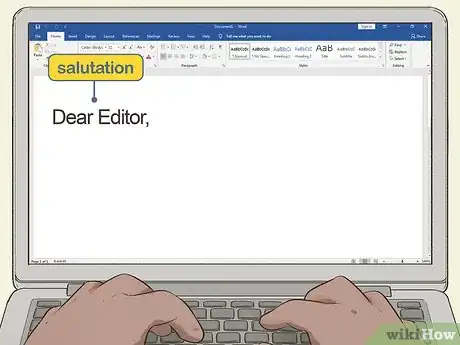
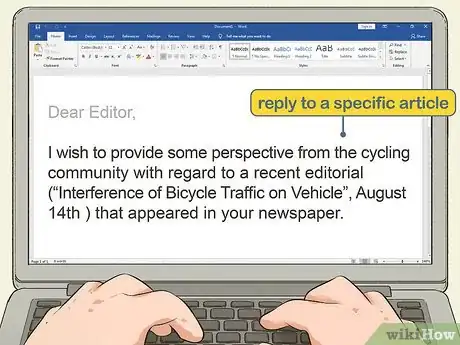
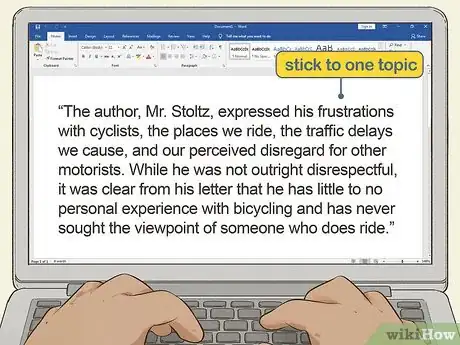
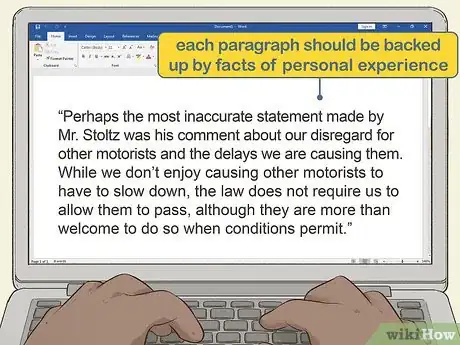
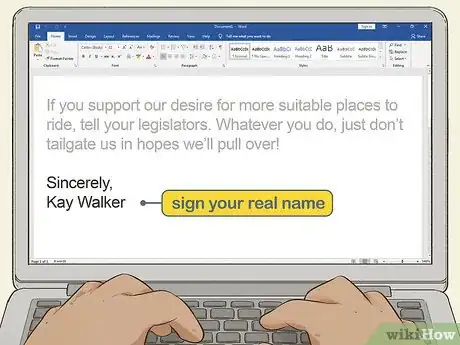
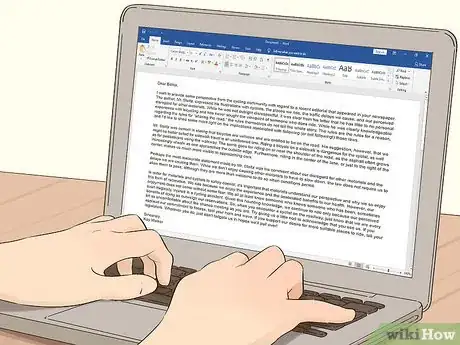

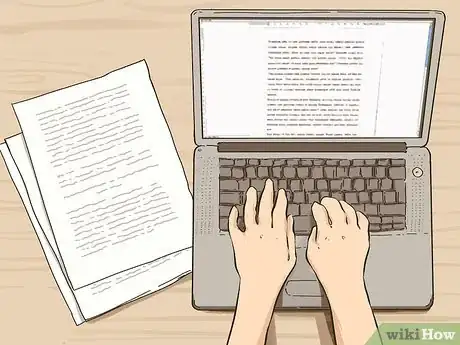



-Step-10-Version-2.webp)






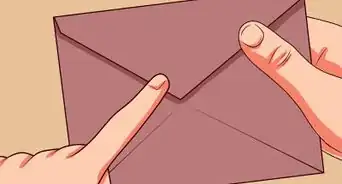











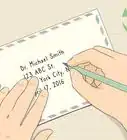

-Step-10-Version-2.webp)


































